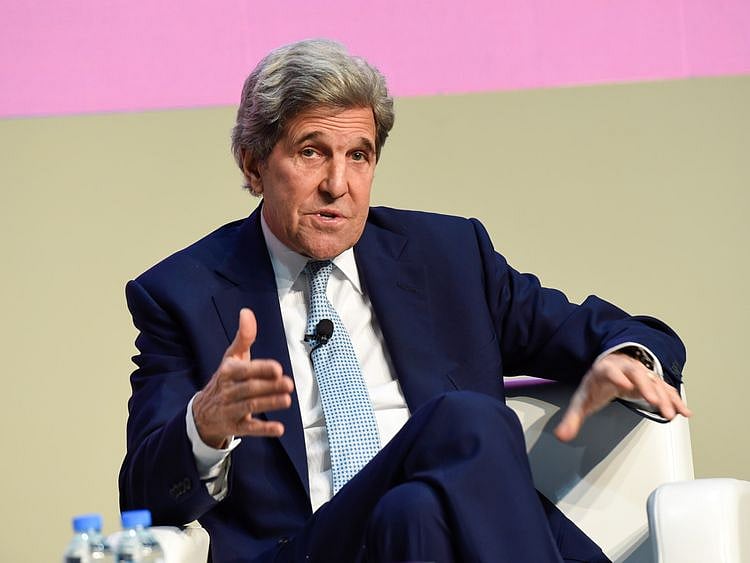US special presidential envoy, John Kerry, to attend UAE’s climate discussions
UAE to convene regional climate dialogue next week ahead of COP26 Summit in November

Also In This Package
Abu Dhabi: The UAE will convene a regional climate dialogue on April 4 to discuss preparations for the 26th United National Climate Change Conference of the Parties (COP26).
The dialogue will see the participation of John Kerry, United States special presidential envoy for climate, COP 26 president Alok Sharma, International Renewable Energy Agency director general Franceso La Camera, as well as ministers and high-level climate representatives from the region. The COP26 summit, scheduled to be held in Glasgow, UK in November 2021, will then focus on accelerated action to achieve the goals of the Paris Agreement and the UN Framework Convention on Climate Change.
Important dialogue
“The UAE views climate action as an opportunity for economic development, while contributing practical solutions to a global problem that affects us all. As the world seeks new pathways to ‘building back better’ in the wake of the COVID-19 pandemic, Special Envoy Kerry’s visit will help consolidate efforts on smart sustainable solutions with tangible benefits for the global community,” Dr Al Jaber said.
Global climate goals
“We are already seeing great examples of climate leadership throughout our region, including the recently announced initiative by our brotherly neighbours in the Kingdom of Saudi Arabia. The regional climate dialogue will provide a constructive platform for the MENA region to unite around progressive, practical solutions that can help the world reach global climate goals, while also fostering innovation for sustainable growth,” he added.
“It is vitally important that the world works together to tackle climate change. That means countries coming forward with net zero targets and near term emissions reduction targets (the 2030 NDCs) that keep 1.5 degrees within reach. The transition to a clean economy is one which can benefit us all: through creating jobs, spurring sustainable development, and cleaning our air. We are already beginning to see progress and countries in the MENA region are well placed to take advantage of the economic opportunities of this transition. However, the consequences of climate change are already being felt across the region, and the UK will use its COP26 Presidency to build momentum on adaptation to help to keep countries, communities and people safe from the impacts of climate change,” Sharma said.
Core themes
Core themes of the regional dialogue include accelerating the deployment of renewable energy solutions, exploring the potential of new zero-carbon energy sources, such as green and blue hydrogen, maximising the impact of mitigation technologies, including carbon capture, and reducing the carbon emission intensity of hydrocarbon fuels, on which the world will still rely during the energy transition. The conversation will discuss policies for adaptation to the impacts of accelerating climate change trends that are of particular concern to the region, such as food and water security, desertification mitigation and environmental conservation.
The participants will seek to develop a common understanding of climate action priorities, as well as a road map for cooperation towards COP26 and related milestones.
Pioneer
The UAE has historically been a pioneer in the region in developing renewable energy and other climate mitigation technologies. Domestically, the UAE’s clean power capacity, including solar and nuclear, is on track to reach 14GW by 2030, from just above 100MW in 2015 and 2.4GW in 2020. The UAE has established the region’s first commercial-scale CCUS network, Al Reyadah, advancing the deployment of a technology critical for carbon abatement and climate change mitigation.
The UAE was also the first Gulf country to sign and ratify the Paris Accords and it recently announced Nationally Determined Contribution (NDC) represents the region’s first economywide target to reduce emissions.
Approved by the UAE Cabinet in December 2020, the UAE’s second NDC includes an enhanced greenhouse gas emissions reduction of 23.5 per cent compared to business as usual for the year 2030. The enhanced target is expected to translate into an absolute emissions reduction of about 70 million tons.
Sign up for the Daily Briefing
Get the latest news and updates straight to your inbox
Network Links
GN StoreDownload our app
© Al Nisr Publishing LLC 2026. All rights reserved.